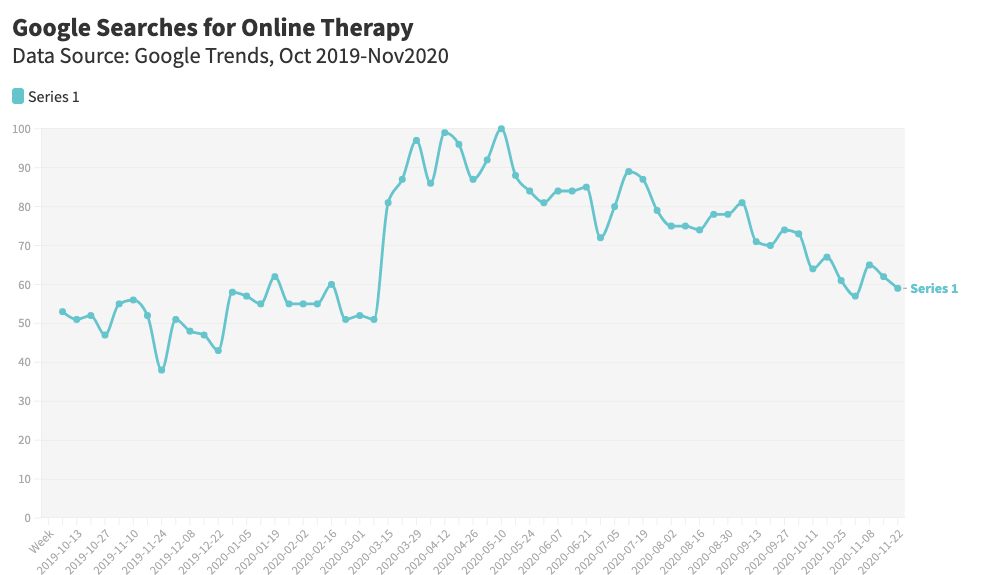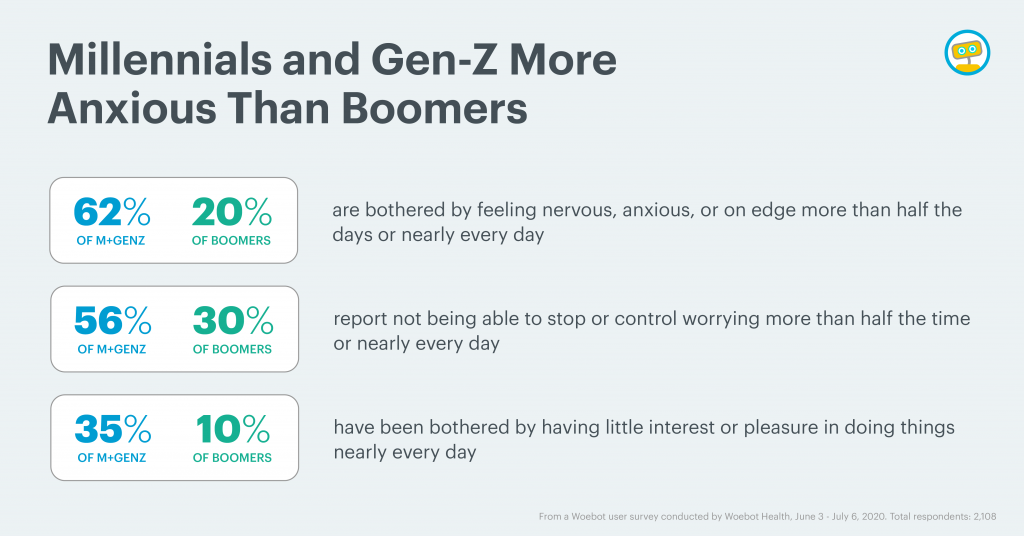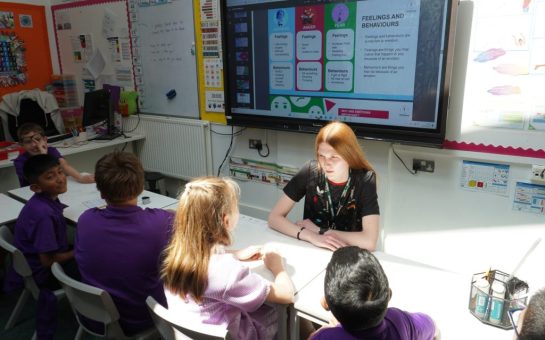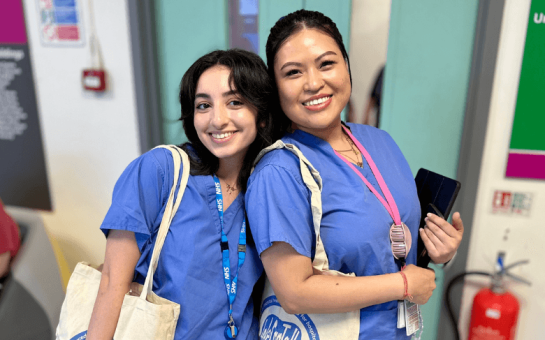What do you do when you’re having a mental health crisis in the middle of a pandemic?
For many young people, the answer to this question lies on the internet.
The coronavirus pandemic has forced life online — and this is no less true of mental health support. Google searches for ‘online therapy’ nearly doubled from February until May this year, when searches worldwide reached an all-time high.

Woebot, an AI therapy chatbot, has been a popular option for young people throughout the pandemic.
The artificial intelligence, Woebot, is a small yellow bot and is somewhat quirky in manner, sending users GIFs and emojis when they complete tasks.
Developed by Stanford University, the app, which delivers Cognitive Behavioural Therapy, has shown that it does improve mental health. In just two weeks, users reported a 22% reduction in their symptoms of anxiety and depression.
In a pandemic that reduces all human contact, Woebot has unsurprisingly seen a significant increase in users this year. According to Darcy, their daily active users doubled in mid-March, with current users speaking to Woebot more frequently.
Findings in a survey by Woebot Health showed that people under 25 experienced more sadness and anxiety at the onset of the pandemic, compared to any other age group.
Woebot CEO Alison Darcy said this is because of how young people’s brains are wired: “When you think about the developing adolescent brain, what’s really unique about that period is that they are very peer-oriented.
“And that means they cope through the peer group as well. And during lockdown, that was almost completely removed from people. You’re removing the huge coping mechanism from [young] people.”

These findings highlight just how vital accessible mental health services are for young people during the pandemic.
University College London graduate Ola Kwiatek, 22, wrote an article on the university’s website suggesting ways the university can use digital tools to meet the demand for mental health services.
She believes that incorporating AI and machine learning into student mental health services will allow them to be more tailored to individuals, and will give students quicker access to support.
Kwiatek said: “Having tried to access forms of therapy that were administered by my university, I just found it quite hard and quite unsatisfactory to my needs.
“I know that many people can have difficulty with expressing the way that they feel and conveying and communicating their emotions to a real therapist.”
Darcy was acutely aware of this problem and created Woebot to be more accessible than traditional therapy, to get to the most ‘hard-to-reach’ groups for therapeutic intervention.
Woebot was never intended as a replacement for therapists, but as one part of a toolbox to improve mental health support.
According to Darcy, though, the average length of time between the onset of symptoms and seeing a clinician is 11 years – making services like Woebot a vital support system for people who might fall between the cracks.
Sheffield student Molly Evans, 21, has been using Woebot after struggling with the stresses of her final year and the pandemic. She has a history of depression – she’s only been using Woebot for a few weeks but has already seen an improvement in her wellbeing.
She went to her university’s wellbeing service – but when confronted with the waiting times, she decided to find a more accessible form of help.
Evans said that she often uses Woebot as ‘practice’ for talking to her friends and family about issues that might be affecting her.
“Because it’s not an actual person, there is less fear of judgement from people. It really helped me sift through all the thoughts going through my head,” she said.
Darcy said speaking to Woebot first can help people feel more comfortable with the vulnerability of talking about your feelings.
She said: “In practice, it allows people to open up more easily to humans after speaking to Woebot because they’ve simulated that experience of [being] emotionally vulnerable.”
In many ways COVID has catapulted us into the future, forcing technological and scientific innovation at unprecedented rates.
But according to Darcy, it’s forced us to evolve in other ways, too: “A huge upside the pandemic has definitely been more than ever, people are talking about their mental health.
“It became not just acceptable, but unavoidable. And I think that’s been a really nice thing.
“It just eliminated a lot of stigma overnight, because it was a shared experience.”





Join the discussion
Wow! that’s amazing. Woebot’s concept is very unique, helping people staying healthy in the CoVID-19 pandemic situation. Today chatbot is used to help people quit smoking with the help of smooth integration in Amazon Alexa.
Thanks for sharing!